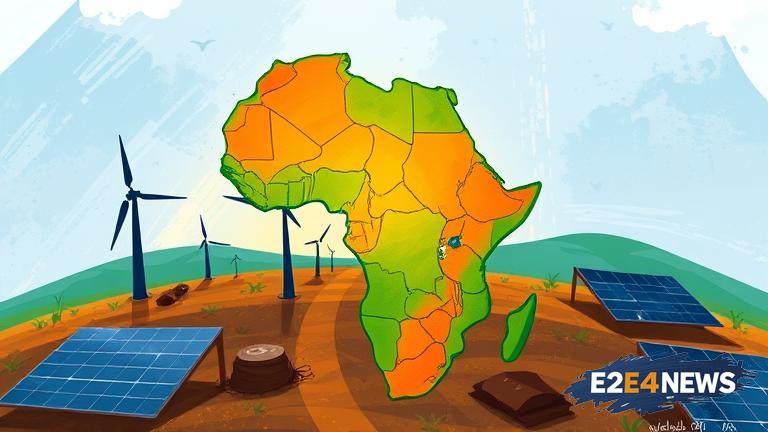Africa has been at the forefront of the global renewable energy revolution, with many countries on the continent investing heavily in solar, wind, and hydroelectric power. The African Union has set ambitious targets to increase the use of renewable energy, aiming to have at least 30% of the continent’s energy mix come from renewable sources by 2030. South Africa, Egypt, and Morocco are leading the charge, with significant investments in solar and wind farms. The use of renewable energy is not only reducing Africa’s dependence on fossil fuels but also creating jobs and stimulating local economies. In addition, renewable energy is helping to mitigate climate change, which is having a devastating impact on the continent. Rising temperatures, changing rainfall patterns, and increased frequency of extreme weather events are all taking a toll on Africa’s agriculture, water resources, and human settlements. The adoption of renewable energy is also improving energy access, with many off-grid communities now able to access reliable and affordable energy. This is having a positive impact on healthcare, education, and economic development. Furthermore, the use of renewable energy is reducing air pollution, which is a major public health concern in many African cities. The African Development Bank has been instrumental in supporting the development of renewable energy projects on the continent, providing financing and technical assistance to governments and private sector companies. The bank’s efforts have helped to mobilize investment in the sector, with many international companies now investing in African renewable energy projects. The growth of the renewable energy sector is also driving innovation, with many African companies developing new technologies and business models to support the industry. In addition, the use of renewable energy is helping to promote energy security, reducing the continent’s reliance on imported fossil fuels. This is having a positive impact on trade balances and economic stability. The African renewable energy sector is also attracting attention from international investors, with many seeing the continent as a key growth market. The use of renewable energy is not without its challenges, however, with many African countries facing significant infrastructure and financing gaps. Nevertheless, the benefits of renewable energy far outweigh the costs, and the continent is likely to continue to see significant growth in the sector in the coming years. As the world transitions to a low-carbon economy, Africa is well-placed to play a leading role in the development of renewable energy. The continent’s abundant natural resources, combined with its growing demand for energy, make it an attractive market for investors. In conclusion, Africa’s renewable energy revolution is gaining momentum, with many countries on the continent investing heavily in solar, wind, and hydroelectric power. The use of renewable energy is reducing dependence on fossil fuels, mitigating climate change, and improving energy access, while also driving innovation, promoting energy security, and attracting international investment.
